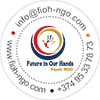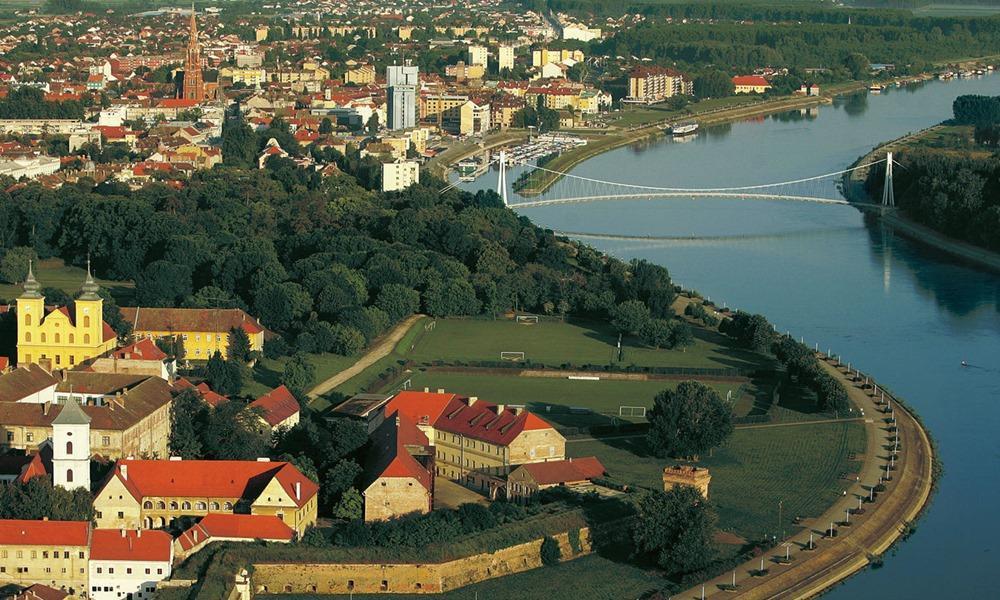2 participants from Armenia will take part in the project.
Dates: 10 days including travel days between 26th of November till 5th of December in Osijek, Croatia(exact dates will be updated soon)
Art therapy is a form of psychotherapy that uses various creative media of artistic expression in working with clients. The purpose of this therapeutic approach is to improve mental and general health that begins with the expression of thoughts and feelings in a nonverbal way. Art therapy is an integrative approach that enables an individual, family or community to recover from traumatic or challenging periods of life and to improve the quality of life in certain circumstances.
The multimodal approach in art therapy involves painting, drawing, using collages, modeling, photography and many other visual techniques. Such an approach respects each client’s personal style of expression, as a means of communication. Art therapy allows the expression of thoughts and feelings at the same time, because visual works can often display content that words cannot. Because we predominantly experience trauma in images, art therapy allows us direct access to the unconscious and develops a creative and alternative way of overcoming problems by looking at visuals that are often unexpected.
Movement and dance therapy is a creative, expressive therapy that applies movement and dance with the aim of improving the emotional, cognitive, social and physical integration of the individual. Movement and posture reflect internal, psychic content and personality, and changes in patterns of movement and posture resulting in healthy changes in the psyche. During this type of therapy, the client gradually gains access to emotions and mental processes through the awareness of his body.
Drama therapy focuses on the targeted use of the healing aspects of drama and theater as therapeutic processes. The methods used on that occasion encourage creativity, imagination, learning, cognition and development. Drama therapy is a diverse profession so it is important to ensure that professional standards are maintained. Playwrights are trained to help the client find the most appropriate medium to engage in group or individual therapy, where they will become aware and work, or make more tolerable, problematic content that bothers him.
Playwrights apply for their work in a variety of contexts such as schools, clinical and hospital settings, prisons or volunteer work. With their adaptive approach, they demonstrate the ability to work with clients whose needs are diverse, such as the youngsters with mental issues from various reasons such as covid brought to our lives, even elderly with dementia, adolescents prone to self-harm, neurological patients or women with postpartum depression.
Costs are covered in the frames of Erasmus+ project.
GOALS:
1. Experience a series of exercises in the field of art (areas – fine arts, drama, dance and movement) in order for an individual to discover the depth of such work
2. Developing motivation through personal deep positive experience for its use for the holistic development of the individual – connecting the body, emotions, mind in future work
3. Acquisition of specific competencies through the offered tools and approaches from 3 areas based on experiential learning
4. Incorporate the approach of thematic areas into the daily work of participants and their organizations and actively contribute to the further development of this innovative approach together with partners through new activities in the future
RESULTS:
• Theoretical knowledge about 3 areas of application of art in working with young people, the power of learning through the senses and the body, concepts of different applications in working with young people and how to create different activities for young people that include 3 areas,
• Increased awareness of innovative tools and areas in non-formal learning using various arts areas,
• A set of skills for designing and implementing informal activities with young people that include the processed areas of art “live” (physically) and virtually,
• Awareness of how to recognize the needs of a young person, implement them through the
work process and monitor their progress,
• Skills of international team cooperation (especially through post-project activities where we will continue to implement activities and learn from each other),
• Developed/improved awareness of one’s own connection of feelings, mind and body and how to encourage the same in working with young people, verbally and non-verbally,
• Greater self-awareness, self-confidence, self-expression and an ability and a deeper level of self-regulation,
• Deeper awareness of the concept of youth empowerment, but also personal development byexperiencing the processes through art,
• Developed creativity to express their own ideas through 3 areas, independently, but also
through interaction with others,
• Awareness of cultural differences when it comes to art, movement and dance culture, the meaning of symbols in painting, the use of acting

